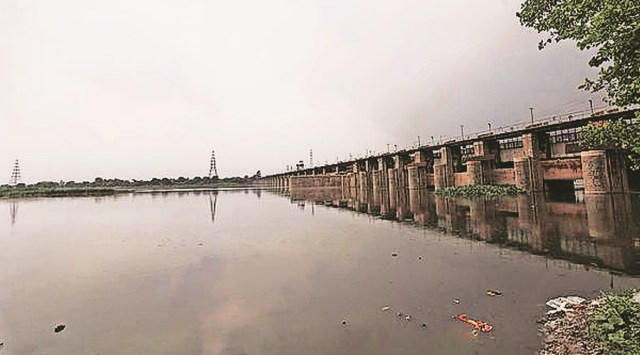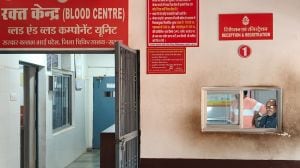Yamuna drying because of illegal mining in Haryana: DJB
Areas that are affected include parts of Central, South and North Delhi — Jahangirpuri, Burari, Defence Colony, Punjabi Bagh, Sarojini Nagar, Janpath, RK Puram, Vasant Vihar, Cantonment area, Karol Bagh, Civil Lines, Jhande-walan, Daryaganj, Delhi Gate, Timarpur, Model Town and Malkaganj.
 “If the Yamuna was dry because of natural reasons, we can accept that. But this is because of greed that sand is being mined for several kilometres in broad daylight resulting in drying up of the river,” he said.
“If the Yamuna was dry because of natural reasons, we can accept that. But this is because of greed that sand is being mined for several kilometres in broad daylight resulting in drying up of the river,” he said.
Delhi Jal Board (DJB) vice-chairman Saurabh Bharadwaj has alleged that the low level of water in the Yamuna at Wazirabad in Delhi is on account of “sand mining” upstream in Haryana.
Bharadwaj said the situation this year was unprecedented with the shortage that is usually seen in May being witnessed from February 23 onwards.
The water level at the Wazirabad pond was 671.7 ft against a normal of 674.5 ft, hitting production mainly at the Chandrawal and Wazirabad water treatment plants, which rely on the river for raw water. The Wazirabad water treatment plant is now producing 82.69 MGD (million gallons per day) against a capacity of 131 MGD. Production at Chandrawal plant has also fallen from 100 MGD to 78 MGD, according to the DJB.
Bharadwaj said water is being diverted from the water treatment plant at Haiderpur to Wazirabad and that altogether, around 40% of the supply in Delhi has been hit.
Areas that are affected include parts of Central, South and North Delhi — Jahangirpuri, Burari, Defence Colony, Punjabi Bagh, Sarojini Nagar, Janpath, RK Puram, Vasant Vihar, Cantonment area, Karol Bagh, Civil Lines, Jhande-walan, Daryaganj, Delhi Gate, Timarpur, Model Town and Malkaganj.
Bharadwaj, who visited the Wazirabad water treatment plant Tuesday, claimed that the water visible in the river at Wazirabad is “industrial waste” reaching Delhi through two drains — DD8 and DD2. The level of ammonia in the water is high and it can only be diluted and used to an extent, he said. On Monday, the level of ammonia was 3.1 ppm (parts per million), which is above the 1 ppm that the DJB’s water treatment plants can treat.
“The water that is reaching Wazirabad is from these drains and not the river from Tajewala. This is because the flow of the Yamuna has been stopped upstream. Once the Yamuna water leaves Tajewala, it has been stopped in places through bunds made by the sand mining mafia… this is a historical problem, the smuggling of mined sand used to happen at small levels earlier, now it’s on a larger scale,” Bharadwaj said.
He referred to what he said were images from Google Maps pointing to dredging of the river, bridges of sorts built across the river and trucks close to the river from locations including one near Sonipat.
“If the Yamuna was dry because of natural reasons, we can accept that. But this is because of greed that sand is being mined for several kilometres in broad daylight resulting in drying up of the river,” he said.
On what communication he had with officials in Haryana, Bharadwaj said, “We are always in contact with their officials. But this is a matter that needs to be dealt with at the government level, not just by the water department here.
No response was available from the Haryana government.







